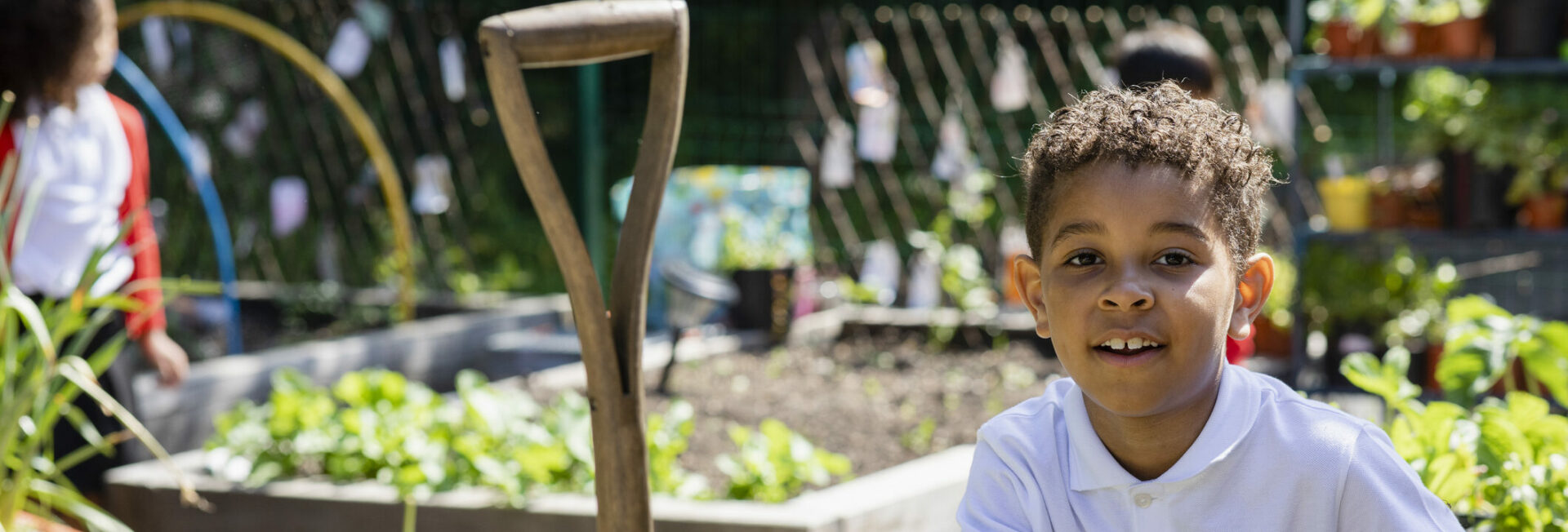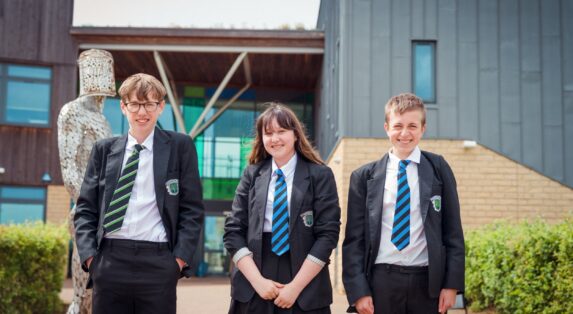
DfE Climate Education Strategy and Citizenship – 12 ideas to lead change
How can schools prepare for the Climate Education Strategy? We take a Citizenship view on how to get onboard.
The 2022 DfE Climate Education Strategy has provided a timely (and very welcome opportunity) for Citizenship teachers and for schools to make a profound contribution to tackling climate change through education, to build sustainable communities and encourage deep engagement with the natural world.
To help inspire and support the Citizenship community to consider how they can embed sustainability in schools, the annual Teaching Citizenship Conference will focus on this theme.
Going back to April last year, the then Secretary of State for Education, Nadhim Zahawi, and former Schools Minister Robin Walker, launched the new DfE Climate Education Strategy at the Natural History Museum. The strategy included a number of key initiatives including:
• National Education Nature park – which will consider comprising the entire physical, education estate including every school, college, nursery and university as a virtual National Education Nature Park. The Nature Park aims to engage pupils in the natural world, directly involve them in measuring and improving biodiversity and help reinforce their connection with nature
• Climate Leaders Award – designed to complement classroom learning and recognise and celebrate children and young people connecting with nature and making a real contribution to establishing a sustainable future for us all
• Sustainability leadership – which takes a whole setting approach to climate change, climate education and sustainability involving governors and senior leaders, including through the creation of Climate Action Plans for each school.
The strategy also set out an ambitious range of outcomes related to climate education and highlights a critical role for the subjects of Science, Geography and Citizenship to ‘empower young people with a greater understanding of climate education, a greater connection to nature’, provide ‘practical opportunities to increase climate resilience, reduce carbon impact and enhance biodiversity’ and encourage ‘positive action to improve communities and the planet’.
The strategy presents many opportunities for teaching Citizenship and for Citizenship teachers to play a leading role in a climate education curriculum, the Climate Leaders Award and developing School Climate Action Plans.
Learning about natural environment
This strategy aims to empower young people to be global citizens through a better understanding of climate change, a greater connection to nature and practical opportunities to increase climate resilience, reduce carbon impact and enhance biodiversity. This includes ‘Learning about nature’ including ‘the causes and impacts of climate change’ and ‘the importance of sustainability’ as key priorities for the curriculum. This is where Citizenship has an important role to play. There are many ways to approach this, but key will be the need to:
- plan opportunities to embed teaching about sustainability and climate education within the current Citizenship curriculum and GCSE requirements as part of a well-planned, progressive and sequenced curriculum
- develop pedagogies that support pupils in developing inquiry and critical thinking as they explore the evidence and consider different viewpoints
- use real sources, case studies and topical issues and events as stimulus for learning
- present a range of views overtime and ensure impartiality is maintained when considering political issues
- provide regular, meaningful opportunities for pupils to take action on climate change and be involved in decision-making within the school and community
Working with pupils as partners in decisions that affect their school community and the wider education estate is a positive way of building student voice and agency.
Across the Citizenship curriculum there are a range of opportunities to link climate education to key Citizenship concepts and content. Here are twelve suggestions to consider in your setting.
- Voting and Elections. Pupils are taught about the election processes and can examine the commitment to the environment and sustainability in manifestos and consider the role of citizens in making informed decisions about those who govern and how they influence the use of resources within society.
- Finance and Economy. How the UK can develop a ‘green economy’, using technology to create energy efficiency and carbon neutral innovation, creating sustainable businesses and jobs; and the role and consequences of financial and consumer choices in our everyday lives.
- Rights. Human Rights are intrinsic to a sustainable and equitable future for all and underpin the idea of climate justice; alongside these ideas are the rights of children to access the natural world and be free from air pollution and other environmental harms.
- Law. The laws (international, national and local) that are in place or may be needed to protect the environment, people affected by the environment and reduce ‘green crimes’; and how these are developed through parliamentary process and the role of citizens in shaping the law.
- Media Literacy. The ability for pupils to become climate informed and climate literate to distinguish between facts and fiction, misinformation and conspiracy; and to help them to make informed decisions in their lives in relation to the environment and sustainability.
- UK and the wider world. Understanding the role of the UK internationally, connections between countries and our membership of the UN and the UK’s responsibilities concerning the climate and the environment.
- Active Citizenship. Learning how to research, plan, carry out, analyse and evaluate action as a means to improve the environment, increase sustainability and reduce carbon impact, as well as to influence those in positions of power to prioritise the environment. Active Citizenship can help pupils feel more positive about creating a sustainable future for everyone.
- Support for teaching. We know there are many ways of including education about climate change in Citizenship. A recent study by Opinium showed 90% of teachers surveyed felt climate education should be compulsory and in another survey by Teacher Tapp, 70% felt they had not received any training on teaching about climate change. While most educators agree this is an important are of education, there remains a long way to go before teachers feel ready to teach it. (Howarth and Dave, 2022) ACT is already working in close collaboration with the Association for Science Education and the Geographical Association to ensure the three subject associations lead the way on the development of high quality curriculum resources and support for teaching climate education. Our role at ACT will be to ensure we share best practice on how sustainability and climate change can be incorporated into teaching through the work we do with teachers and schools.
- Learning about the natural environment through action. Active citizenship is a requirement of the Citizenship national curriculum and the GCSE Citizenship Studies qualification. This is a key opportunity for teachers to support and develop pupils’ agency through positive actions to address climate change and to learn through practical engagement with the natural environment. We know Citizenship teachers are adept at providing practical activities to bring learning to life through active citizenship projects. Good Citizenship education also includes creating opportunities for pupils to take part in student voice and school decision making activities, out of school activities such as debate clubs and join school decision making bodies such as student parliaments. These can all contribute to how a school takes forward its plans on climate education in the curriculum and the Climate Action Plan which are included in the strategy as a means to promote the effective integration of more sustainable approaches to running schools as organisations. Recognising and celebrating the achievements of pupils in these and other ways can be a key motivator for action and link to opportunities within formal qualifications (GCSE, entry level certificates, extended project qualification, A level) and the many other types of awards available. The concept of the Climate Leaders Award will recognise many different kinds of positive action children and young people take and will provide an umbrella for this recognition and may link to UCAS points for those continuing to University.
- Green skills and careers. There are many opportunities within Citizenship teaching to work with different members of the community and those in different kinds of professions. Such opportunities are often linked to active citizenship projects and investigations and can help raise pupil aspirations and introduce them to ‘green career’ pathways and opportunities which they may not have considered. For example, working with an environment officer as they explore pollution levels or how local councils are dealing with waste; investigating the role of NGOs who work on equalities and human rights issues in relation to climate migration and protection of the natural environment; or businesses who are designing and developing green products for use in our daily lives and contributing to a green or circular economy.
- Education estate and digital infrastructure. Working with pupils as partners in decisions that affect their school community and the wider education estate is a positive way of building student voice and agency. For example, the role of pupils in achieving environmental quality marks for their school, monitoring the sustainability and carbon impact of school policies and use of resources and making decisions about how the school estate is used to create a safe and sustainable space in which to learn about nature and promote biodiversity as part of the National Education Nature Park.
- Operations and supply chain. The practices and decisions that schools take in relation to how the school operates as an organisation and community, the choices made about products and services and the way in which pupils are involved in such decisions can also provide very tangible and meaningful ways to engage in learning and contribute to the circular economy, waste prevention and resource efficiency. These practices and decisions can form part of a schools Climate Action Plan which is one of the goals set out in the DfE strategy.
The practices and decisions that schools take in relation to how the school operates as an organisation and community can also provide very tangible and meaningful ways to engage in learning and contribute to the circular economy, waste prevention and resource efficiency.
Conclusion
The Sustainability and Climate Change Strategy for education is an opportunity to engage young people in the natural environment, climate education and how to make a positive difference in their communities. The strategy supports the principle that children and young people need to develop agency and involvement in decision-making on matters affecting the environment, and that this can support a more sustainable future for us all while promoting wellbeing. This is a great moment for schools to take the lead on sustainability, reducing their carbon impact and promoting and valuing a concern for the environment. Citizenship teachers – you can show the way – and ACT will be there to help you as you do.
Register today to join us at the premier conference for the Citizenship teaching community on the 29th June 2023.
References
Leigh Hoath and Heena Dave ‘Implementing a Sustainability and Climate Change Strategy’ 2022 available online. https://fed.education/wp-content/uploads/2022/04/ssr-march-2022-072-075-hoath.pdf


